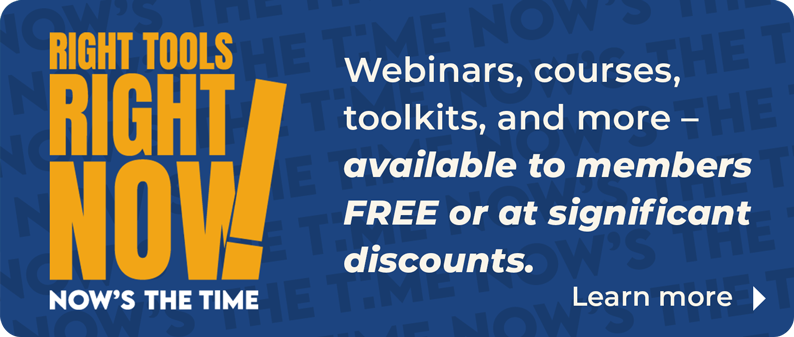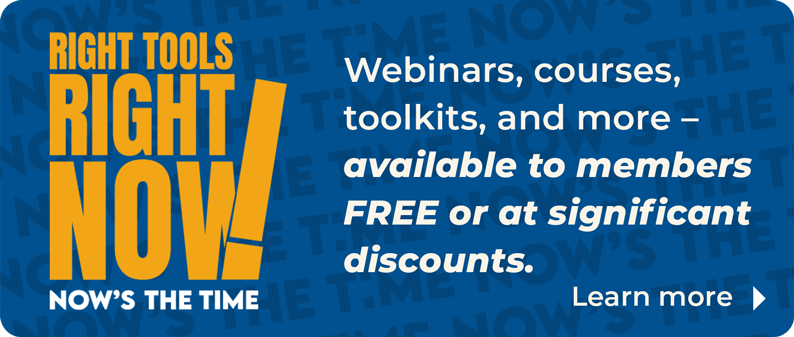Advocacy
References
NAR Library & Archives has already done the research for you. References (formerly Field Guides) offer links to articles, eBooks, websites, statistics, and more to provide a comprehensive overview of perspectives. EBSCO articles (E) are available only to NAR members and require the member's nar.realtor login.
Disaster Insurance Coverage
While the exact coverage will vary from policy-to-policy, the following list should give you a good idea of the types of natural "disasters" that a standard policy covers:
- Fire / Lightning
- Windstorms / Hail
- Freezing of Plumbing / Pipes
- Damage from Weight of Ice
- Volcanic Eruptions (with exceptions)
Source: Disaster Insurance (Money-Zine Blog, Oct. 19, 2020)
Information From NAR
Climate Events to Impact Property Insurance (REALTOR® Magazine, Dec. 1, 2021)
“The impact of natural disasters on the residential property market has not been limited to recent disasters in California and Florida, the report says. Some of 2020’s most costly disasters occurred in Texas, Virginia, and South Dakota. In 2021 in Texas, a winter storm was responsible for 40% of the total losses in the U.S. property insurance market during the first half of the year.”
Buyers Consider Disaster Risk in Purchase Decisions (REALTOR® Magazine, Sep. 28, 2021)
“Seventy-five percent of recent home buyers say they are concerned about the threat of natural disasters. The natural disasters that have them most concerned: tornadoes (39%); severe cold or winter storms (38%); floods (35%); hurricanes (29%); earthquakes (21%); wildfires (17%); droughts (11%); and sinkholes (8%).”
Disaster Preparation Resources (National Association of REALTORS®)
“Educational resources for real estate professionals, including how to plan for, protect against, respond to and recover from natural disasters.”
FEMA-NAR Toolkit: Flood Preparedness Resources (FEMA-National Association of REALTORS®)
“Find educational resources and promotional pieces to outline the financial protection flood insurance offers and explain various flood insurance requirements to homeowners and business owners.”
Disaster Insurance Basics
Disaster Loan Assistance (U.S. Small Business Administration, Feb. 11, 2022)
If you are in a declared disaster area and are the victim of a disaster, you may be eligible for a low-interest rate disaster loan from the U.S. Small Business Administration - even if you don't own a business. As a homeowner, renter and/or personal-property owner, you may apply to the SBA for a loan to help you recover from a disaster.
Frequently Asked Questions (FAQs) (DisasterAssistance.gov, Feb. 3, 2022)
“Can I apply for FEMA assistance if I have insurance?
Yes. You may qualify for FEMA assistance even if you have insurance. By law, FEMA cannot duplicate benefits for losses covered by your insurance. So, you need to file a claim with your insurance company as soon as possible.”
Natural Disaster Insurance: How to Protect Your Home from Hurricanes, Wildfires and More (CNET, Nov. 15, 2021)
“After a natural disaster strikes, you'll file a claim for any damages incurred. Although you can usually handle this process entirely online, it can be helpful to speak with an agent. Be sure to file a claim as soon as possible after damages occur -- one of the worst things you can do is wait to file a claim. If possible, always file the day or after a natural disaster. “
The Risk MAP Program: Information for Real Estate, Lending and Insurance Professionals (FEMA, Nov. 4, 2021)
“Risk MAP supports community resilience by providing data, building partnerships, and supporting long-term hazard mitigation planning.”
Settling Insurance Claims After a Disaster (Insurance Information Institute)
“Your insurance company may send you a proof of loss form to complete or an adjuster may visit your home first. (An adjuster is a person professionally trained to assess the damage.) In either case, the more information you have about your damaged possessions -- a description of the item, approximate date of purchase and what it would cost to replace or repair -- the faster your claim generally can be settled.”
The Right Disaster Insurance for Your Region (HouseLogic)
“These regional risks also indicate whether you need to consider purchasing supplemental disaster insurance to cover claims that wouldn't be included under a typical homeowners policy. Determining if you live in a disaster-prone region and reviewing your existing coverage are good first steps.”
Do You Need Flood Insurance?
How Risk Rating 2.0 Makes Flood Insurance More Equitable (REALTOR® Magazine, Apr. 1, 2022)
“NAR’s Risk Rating 2.0 toolkit contains resources for REALTORS® to assist homeowners and buyers, including ways to connect them with flood experts who can offer risk assessment and mitigation resources as well as answer property-specific questions.”
The National Flood Insurance Program (FEMA, Mar. 9, 2022)
“Flood insurance is available to anyone living in one of the 23,000 participating NFIP communities. Homes and businesses in high-risk flood areas with mortgages from government-backed lenders are required to have flood insurance.”
How Flood Insurance Can Help You Recover after Severe Weather (CNET, Feb. 10, 2022)
“Private flood insurance generally has a 14-day waiting period and offers broader coverage options than NFIP insurance.”
Should You Get Flood Insurance for Your Home? (The New York Times, Oct. 8, 2021)
“Regular homeowner’s insurance, on average, costs $1,312 a year, according to Bankrate.com. So buying flood insurance could mean more than doubling your insurance costs. But insurance providers insist it’s a cost worth considering.”
What Does Flood Insurance Cover? (HouseLogic)
“NFIP may give you $30,000 to use to raise, tear down, or move your home. That $30,000 gets added on to any other claim NFIP pays you. But the total still can’t go above $250,000.”
What You Need to Know About Excess Flood Insurance (HouseLogic)
“Since excess policies cost dearly and aren’t plentiful, this isn’t an insurance product you should shop for on your own. Use a knowledgeable insurance broker to help you uncover your options. Don’t know one? Most REALTORS® who work in flood zones can give you a referral.”
Should You Buy Flood Insurance? (HouseLogic)
However, if you live in a moderate- to low-risk zone, and your community belongs to the National Flood Insurance Program (most do), then you have the option of buying it. If you’re in the latter category, your first question probably is, “How much does it cost?” Federal flood insurance can cost just a few hundred dollars or as much as $10,000 a year, depending on your risk factor.
eBooks & Other Resources
eBooks.realtor.org
The following eBooks and digital audiobooks are available to NAR members:
Contingency Planning and Disaster Recovery (eBook)
Crash Course in Disaster Preparedness (eBook)
Disaster Preparedness Kit (eBook)
Hurricane Preparation & Survival (eBook)
Real World Survival Tips and Survival Guide (eBook)
The Unthinkable Who Survives When Disaster Strikes--and Why (Audiobook)
Disaster Management and Preparedness (eBook)
How to Insure Your Home (eBook)
Leading People Through Disasters (eBook)
Books, Videos, Research Reports & More
As a member benefit, the following resources and more are available for loan through the NAR Library. Items will be mailed directly to you or made available for pickup at the REALTOR® Building in Chicago.
The Great Deluge: Hurricane Katrina, New Orleans, and the Mississippi Gulf Coast (New York, NY: Morrow, 2006) HV 636 B75
Before and After Disaster Strikes: Developing an Emergency Procedures Manual (Chicago, IL: Institute of Real Estate Management, 2005) HC 62 In7bd
Be Alert, Be Aware, Have a Plan: The Complete Guide to Protecting Yourself, Your Home,Your Family (Guilford, CT: Globe Pequot Press, 2002) HV 7431 R19
Disasters and Democracy: The Politics of Extreme Natural Events (Washington, DC: Island Press, 1999) HV 555 P53
Disaster Preparedness: Simple Steps for Business (Chicago, IL: Crisp Publications, 1998) HF 5500 F87
Disaster Insurance Protection: Public Policy Lessons (New York, NY: Wiley-Interscience, 1978) HG 9970 K96
Disaster Relief and Rehabilitation in the United States: a Research Assessment (Boulder, CO: 1975) HC 62 C71d
Have an idea for a real estate topic? Send us your suggestions.
The inclusion of links on this page does not imply endorsement by the National Association of REALTORS®. NAR makes no representations about whether the content of any external sites which may be linked in this page complies with state or federal laws or regulations or with applicable NAR policies. These links are provided for your convenience only and you rely on them at your own risk.




















